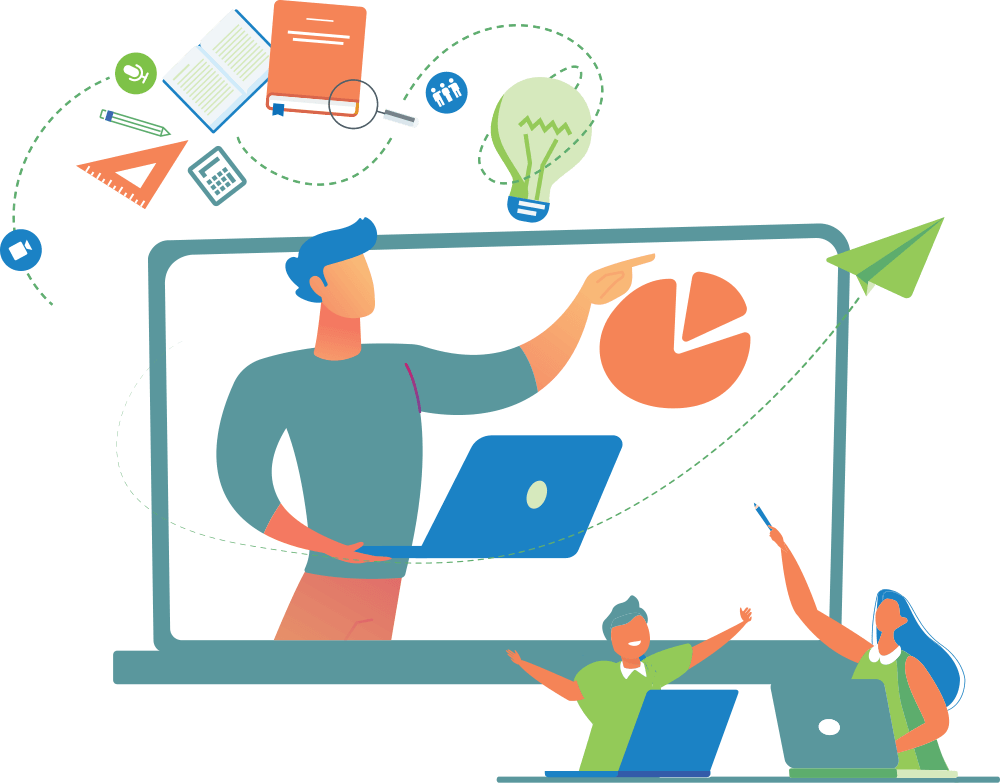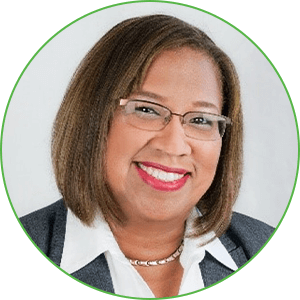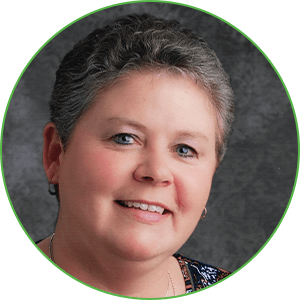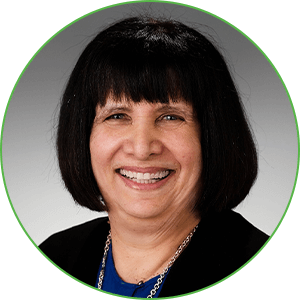

Developed by educators, for educators
At 3P Learning, we understand teachers. Our workshops are designed by a team of educators to blend pedagogical knowledge, best practices, and hands-on application to any instructional setting.
Catered to suit your needs
To accommodate to your schedule, our services are built in a variety format, with hands-on personal support, and accessible strategies that can be applied immediately.
A whole-solutions provider
As your partner in education and professional learning, we are here to support teachers in every phase of their professional journey.
Creating lifelong learners
Ed Chats is a virtual professional development event series. These sessions aim to educate, empower and equip classroom teachers with new strategies to bring back to the classroom. We believe in creating lifelong learners, within both our student and teacher communities. These sessions are free and open to all teachers to attend.

Professional Development Courses
Be inspired with fresh ideas and teaching solutions or learn how to integrate our digital solutions seamlessly in your class. For new or experienced teachers, our flexible pathways allow you to choose the course(s) most relevant to your school and your teachers. With a strong focus on pedagogical practice, our workshops are planned, arranged, and guided by our team of professional learning specialists, with vast backgrounds as educators.
Have Questions?
Get a customized professional learning solution suited to your needs. Contact us to find out more.

Session Description:
This session is a getting started experience designed to prepare new partners for a successful launch with students. Teachers will spend time exploring the solutions gamification pedagogy, activities, data-driven reports, and embedded resources. Teachers will also dive into their personalized Teacher Console and explore the interactive student view, among a host of other key topics.
Learning Outcomes:
- Understand the research behind the solution design, including pedagogical research on number sense, child development, technology, and student engagement.
- Navigate the student and teacher digital console through a guided interactive user experience for usability, functionality, and findability.
- Explore activities that provide exploration, practice, and application in one or more aspects of number sense, operations and algebraic thinking, measurement, data, and geometry.
- Learn how to leverage digital and printable resources with a degree of rigor through procedural fluency, conceptual understanding, and real-world application to promote 21st century learning skills.
- Discover how to analyze, interpret, and use real-time data drawn from student’s formative and summative assessments to monitor progress toward individual student achievement goals.
Session Description:
This session will focus on how teachers can meet the challenge of serving the needs of all types of learners in their maths classroom. The session will explore actionable strategies to use in content, instruction, product and environment to strengthen student understanding and retention of concepts. We will take an in-depth look at the value and impact of differentiated instruction for student progress and the strategies needed to design effective instruction using the robust online resources.
Learning Outcomes:
- Learn to personalize learning for students or groups of students using student results by maximizing a variety of differentiated instructional tools to build students math skills and deepen their number sense and problem-solving skills.
- Disaggregate assessment data and create personalized learning journeys for students using teacher tools and lesson planning resources.
- Learn practical instructional strategies, activities, and resources to utilize with diverse learners to maximize the learning content.
- Learn how to incorporate fun and meaningful student-centered activities into every math lesson to address various learning styles.
- Get in-depth information on ready-made printable resources and a guided interactive user experience into the student and teacher digital console.
Session Description:
Blended learning is a hybrid teaching strategy that combines technology and instruction in the 21st century classroom. In this session teachers will discover how using a variety of teaching tools to integrate math solutions for different instructional models; brick and mortar model (in school learning), virtual model (distance learning at home), and a hybrid model (a combination of in school and virtual distancing learning) can empower students to learn. Teachers will learn how to track student progress, provide e-learning opportunities using differentiated, expanded, and accelerated lessons to increase student confidence and success.
Learning Outcomes:
- Enhance student learning by developing stations with an interactive digital tool for enrichment and build personalized learning experiences using technology.
- Effectively use digital resources and assessments for ongoing evaluation to monitor student progress and provide examples of varying degrees of difficulty in math concepts to encourage students, while challenging those that have mastered the material.
- Teachers will explore simple ways to bring the blended approach into the classroom through the combination of effective practices, resources and activities to develop students’ practice, fluency and critical thinking skills.
Session Description:
Assessment is necessary to monitor progress, to identify strengths and weaknesses, to assess prior knowledge, and to inform further instruction. This session will take a deep dive into the suite of math assessments available on the interactive online platform. Teachers will navigate the range of assessment tools embedded in the learning resources to track student progress and plan instruction across key mathematical skills and standards.
Learning Outcomes:
- Explore the components of the interactive dashboard, instructional elements, and interactive activities.
- Focus on a variety of teaching resources such as printables, digital formative and summative assessment tools and lesson plans to inform small group instruction or reveal strengths and weaknesses.
- Review the reports on the teacher dashboard that track student progress solutions and show achievement over time.
- Analyze data from a range of reports for concept development, understanding, fluency and problem-solving skills.
- Explore how to assign assessments to individual students or the whole class and how to analyze detailed data reports generated.
Session Description:
Math stations are an effective way to allow teachers to provide small-group instruction to support students’ needs following a whole-class lesson and provide students with a purposeful approach to practice and review various math skills.
Learning Outcomes:
- Learn how to effectively implement math stations in the classroom and establish routines to enable students to work effectively and independently.
- Take a deep dive into the abundant teacher console resources for planning station activities.
- Collaborate with peers to develop meaningful standards-based lessons and practice that can be easily integrated into the classroom curriculum and ongoing math stations.
- Discover strategies and tools to plan, manage and measure the effectiveness of math stations using available resources.
Session Description:
Gamification theory in education is that learners learn best when they are having fun. In this session teachers will learn how gamification impacts students through feelings of success and failure, as well as frustration and anxiety. Most well-designed games give us pleasure and make us want more. Alternating failure with success is the core concept at the heart of many video games, which is why a growth mindset pedagogy and game-based learning go hand in hand. We will explore the research of how gamification increases student engagement and motivation while capturing their interest to continue the learning process. Teachers will experience the math solutions and learn how students engage with gamification by earning points, certificates and rewards.
Learning Outcomes:
- Explore strategies to incorporate gamification within the classroom to boost engagement, collaboration and learning in remote, hybrid or in person environments.
- Discover strategies for students to take ownership over their learning by letting students set the rules of a learning game, allow control of the gamified solutions such as avatar design and help students track their own progress.
- Discuss the research by Dr. Carol Dweck and how to develop a growth mindset with game-based learning.
- Learn to use gamification to develop cognitive development, critical thinking and problem-solving to improve students’ processing and information retention.
- Establish practices and routines for classroom management in a gamified environment.
Session Description:
This professional learning session provides educators with an opportunity to have specialized professional learning within their classroom environment for classroom launches or creating blended learning environments to specifically meet individual student needs. In advance of the session, a virtual planning session must be facilitated to prepare the embedded session. We work hand in hand with school groups to ensure our toolkit is right for the needs of the teachers.
Learning Outcomes:
- The professional development series will provide educators with classroom coaching and modeling to support and ensure teachers are confident with their instructional solutions.
- We discuss what success looks like for the district, teacher and students, and tailor the onboarding to meet the needs.
- The content covered will be relevant to the culture of the school and provide teachers with concrete opportunities to practice the skills learned.
- Our education specialist will work with education leaders to develop strategies to overcome challenges or achieve district goals.
Session Description
Students benefit enormously from instruction where conversations about mathematics are prominent. But in order to have rich conversations, you need to ask rich questions. We will talk about what rich questions look like in a classroom and contrast them to the kinds of questions that are less likely to promote valuable learning conversations in a math class. This session can be tailored to the grade band of interest, whether K-3, K-6, 5-9, or 9-12.
Learning Outcomes
You will learn strategies for promoting rich math conversations.
Session Description
Teachers ask lots of questions of their students, but those questions sometimes focus on knowledge the students have, but not their understanding. We will spend time comparing the kinds of questions you would ask to develop and to assess understanding rather than knowledge or skills. This session can be tailored to the grade band of interest, whether K-3, K-6, 5-9, or 9-12.
Learning Outcomes
You will learn to distinguish between questions that assess understanding and those that do not and learn to change assessment questions of the second type into assessment questions of the first type.
Session Description
Although math is often taught as a set of skills you mark off a checklist, there is enormous value in teaching so as to build connections between content being taught. We know that when we connect new learning to what we already know, it stays with us better and longer. One of the ways to build these connections is to focus on essential understandings of math that go across many grade levels and topics. We will spend time exploring those essential understandings and talking about how to use them as a way to build connections between topics. This session can be tailored to the grade band of interest, whether K-3, K-6, 5-9, or 9-12.
Learning Outcomes
You will learn to use big ideas/essential understandings to build math connections in your classroom.
Session Description
A teacher focused on conceptual understanding emphasizes different aspects of a topic when teaching an outcome or expectation. This session will help participants see the difference between having or not having a focus on conceptual understanding, will share the types of questions that should be asked to bring out conceptual understanding, both in instruction and assessment, and will help participants consider the value of this sort of approach. The session can be adapted to focus on any grade grouping in K-12.
Learning Outcomes
You will see how your approach to mathematical instruction needs to change if you decide to focus on conceptual understanding rather than only on procedural competence.
Session Description
This introductory session is a walkthrough of the dynamic 2-in-1 solution in Reading Eggs and Reading Eggspress. These solutions are built on the five key pillars of reading and designed to help students become proficient readers using interactive activities and lessons. Teachers in grades Pre-K-2nd will take a deeper dive into how Reading Eggs focuses on an early reading curriculum of skills and strategies which are essential for sustained reading success. The session will also review the Reading Eggspress comprehension solution for students in grades 2-6 and how it focuses on building reading comprehension and other English language skills. Participants will discuss the scientific research of the spelling and comprehension program for Reading Eggs and Reading Eggspress.
Learning Outcomes
- Explore the Reading Eggs and Reading Eggspress, books and practice activities that reinforce the essential reading.
- Learn how Reading Eggspress builds children’s skills in reading, comprehension, spelling, vocabulary, and grammar by using a range of learning resources, reading lessons and online literacy activities and games.
- Provide detailed information on Fast Phonics to help teachers access students’ end-of-peak assessment results in the Teacher Dashboard to monitor progress and inform classroom practice.
- Point-of-use support to navigate student and teacher digital dashboard through an interactive user experience for usability, functionality, and findability.
Session Description
This professional learning session provides educators with an opportunity to have specialized professional learning within their classroom environment for classroom launches or creating blended learning environments to specifically meet individual student needs. In advance of the session, a virtual planning session must be facilitated to prepare the embedded session. We work hand in hand with school groups to ensure our toolkit is right for the needs of the teachers.
Learning Outcomes
- The professional development series will provide educators with classroom coaching and modeling to support and ensure teachers are confident with their instructional solutions.
- We discuss what success looks like for the district, teacher and students, and tailor the onboarding to meet the needs.
- The content covered will be relevant to the culture of the school and provide teachers with concrete opportunities to practice the skills learned.
- Our education specialist will work with education leaders to develop strategies to overcome challenges or achieve district goals.
Session Description
For decades, educators have researched and debated about the best way to teach children to read. The Science of Reading is a synthesis of scientific research that has culminated in a preponderance of evidence to inform how proficient reading and writing develops; why some have difficulty; and how we can most effectively assess, teach and, improve student outcomes. This session provides an overview of the Science of Reading and points to how the scientifically derived solutions in Reading Eggs follow the evidence-based features of the Science of Reading.
Learning Outcomes
-
Define and explore the Science of Reading including its 5 Key Points
-
Associate the 5 Key points of the Science of Reading with the 5 Pillars of Reading and Scarborough’s Rope
-
Evaluate teaching practices that are aligned with and are not aligned with the Science of Reading
-
Explore the ways that Reading Eggs supports and upholds the Science of Reading
Session Description
By the time a struggling reader reaches grade 3, he/she/they know it and the cycle of not wanting to read because it is hard has begun. However, there are evidence-based interventions that teachers can employ to develop the skills these students need to be proficient and confident readers. This session uncovers the research behind literacy as it relates to struggling readers and empowers teachers to utilize digital solutions to fill learning gaps in reading.
Learning Outcomes:
-
Discover the Simple View of Reading and Scarborough’s Rope
-
Investigate McKenna’s Cognitive Model of Reading Assessment
-
Evaluate solutions found in Reading Eggs
-
Collect strategies for supporting older struggling readers
Session Description
Literacy is the key to academic, professional and personal success. Poor literacy skills are shown to be connected to many life-long struggles. The good news is that there are strategies and best practices that can target and build literacy skills in all students. This session explores the specific needs of readers with Dyslexia, those who are learning English as a second language and struggling readers in Grades 1-2. Teachers will investigate the research and explore how Fast Phonics supports these students’ achievement as part of the Five Pillars of Literacy.
Learning Outcomes
-
Explore the reason that learning to read is hard.
-
Understand how the brain works differently and how teachers can support the specific needs and employ educational best practices for students with dyslexia
-
Evaluate the specific needs of English Language learners based on the 5 pillars of reading
-
Discover specific, targeted supports for struggling primary-aged readers found within Fast Phonics
Session Description
This informative and interactive session is designed for educators, school administrators, and anyone passionate about fostering the development of students. In today’s complex educational landscape, it is increasingly important to equip learners with not only academic knowledge but also essential life skills. This session delves into the Collaborative for Academic, Social, and Emotional Learning (CASEL) competencies, a framework recognized worldwide for promoting social-emotional learning (SEL) in educational settings. Participants will explore CASEL’s five core competencies – Self-Awareness, Self-Management, Social Awareness, Relationship Skills, and Responsible Decision-Making – and discover practical strategies to integrate these competencies into their teaching and school culture. By aligning social-emotional learning with academic goals, attendees will gain insights and tools to create a positive and inclusive learning environment that empowers teachers and students to thrive both academically and emotionally.
Learning Outcomes:
- Understand the five CASEL core competencies and their significance in how they relate to the participant’s unique role.
- Recognize the Impact of how social-emotional skills directly affect academic achievement, classroom behavior, and overall student well-being.
- Learn techniques to create a positive and inclusive learning environment that nurtures students’ social and emotional growth.
- Gain insights into collaborative approaches to promote trust, community and efficacy among staff by implementing Adult SEL competencies across your school, involving teachers, parents, and the community.
- Identify valuable resources, tools, and best practices to support the integration of CASEL competencies in your educational setting.
Session Description
Project-based learning, or PBL, is a great approach for engaging students in problem-solving with a purpose while also addressing content standards across subject areas. This session is designed for new and experienced PBL teachers interested in learning more about how to become stronger facilitators using the seven essential project design elements, as well as the project-based teaching practices in their classrooms. It is also ideal for teachers who are just getting started with PBL to strengthen their practices on student engagement and accelerating learning.
Learning Outcomes:
- Build on existing practice and knowledge using the Seven Essential Project Design Elements and Rubrics.
- Learn how to use the Seven Project Based Teaching Practices and Rubrics.
- Explore examples of standard projects that teach meaningful learning goals.
- Understand the culture, mindset and conditions students need to achieve rigorous learning goals through PBL.
- Identify the next steps for getting started as a Project Based Facilitator.

What’s included
Experienced Educators
Our experienced Professional Learning Team uses research-based strategies to elevate practice, support students’ success, and maximize the power of integrating 3P Learning solutions.
Customizable Sessions
We offer flexible pathways such as on-demand live sessions, onsite and remote learning to suit your schedule. Our Professional Learning Team will assess your needs and develop action plans to meet your goals.
Enhanced Support
Our professional development series provide educators with classroom coaching and modeling support to ensure they are confident with their learning growth and instructional solutions.

Meet our team

Miriam Williams, M.Ed., has built her 23 year career as an educator serving low-performing schools in the United States as middle school teacher, assistant principal and principal at both elementary and secondary Title I schools. She was also district manager for 47 public charter schools and has extensive experience in school transformation and building the capacity of focused learning teams.
She facilitates core curriculum workshops, literacy coaching, personalizing learning through rigor and relevance, implementation of best practice strategies for dual language schools and supports literacy intervention programs. Ms. Williams also conducts executive coaching, leadership development, student-centered coaching and teacher mentoring in core content areas.

Sheila Robitaille, M.Ed., B.S., OCT, is a veteran teacher and educational leader with 27 years of experience as a classroom teacher, program director, professional development specialist and principal. Her experience spans across both Canada and the United States, both elementary and high school, and in both public and private schools. She is passionate about developing teachers by providing them with tools that support best educational practices.

3P Learning is also pleased to offer professional development workshops facilitated by Dr. Marian Small, International Professional Development Consultant for Improved Mathematics Education. These sessions focus exclusively on pedagogical practice and are prepared and delivered by Dr. Small.
Dr. Small is the author of many highly-acclaimed books including Good Questions: Great Ways to Differentiate Mathematics Instruction in the Standards-Based Classroom, Eyes on Math: A Visual Approach to Teaching Math Concepts, Understanding the Math we Teach and How We Teach It (Canadian version- Making Math Meaningful to Canadian students) and Uncomplicating Fractions.

Testimonials

Get started today
Learn, master and grow with 3P Learning. Find out how our professional learning solutions can support and enhance your team’s professional growth.



